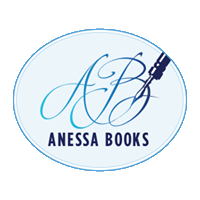 We all need some help now and then. And we all need guidance on how to do this crazy thing we call “writing a novel”. I’ve found incredible inspiration and learned so many lessons from the books on my writer’s bookshelf. Here are some I’ve found myself returning to again and again.
We all need some help now and then. And we all need guidance on how to do this crazy thing we call “writing a novel”. I’ve found incredible inspiration and learned so many lessons from the books on my writer’s bookshelf. Here are some I’ve found myself returning to again and again.
The Writer’s Toolkit by Bob Mayer
Bob Mayer is a great writer of Thriller and Suspense novels. He’s also got a number of SciFi titles and once wrote a great romance series with Jennifer Crusie which is one of my favorites (I love all Crusie books, but those hold a special place in my heart). He’s also written two wonderful books on writing: The Writer’s Toolkit and Writing It Forward. Both a great books. The Writer’s Toolkit has a few more sticky-notes popping out of the back, which shows how useful I found the book. The one thing I really got out of it is the concept of the kernel idea. Pick it up and read it and your life might be changed as well.
The Power of Point of View by Alicia Rasley
Rasley is The Most Amazing Writing Teacher E V E R! She’s also written some pretty good Regency romances. But, truly, her talent lies in teaching. And boy does she do an incredible job in teaching all about point of view in this book! I’ve always found point of view to be a challenging, and therefore, fascinating topic. You can do so much to make a book more interesting and a character more developed just by working on the point of view in your novel. Rasley tells you all about how to do this in her book.
Goal, Motivation, and Conflict by Debra Dixon
In the same vein is Dixon’s book on GMC. Along with POV, it’s one of the most important things to understand within the craft of writing and therefore worthy of study. Dixon does an incredible job of explaining the concept and the importance of this aspect of craft. (By the way, you can tell just how useful I’ve found a book by looking at the sticky notes poking from the pages — this book has nearly 20.)
The Forest for the Trees by Betsy Lerner
This was one of the very first books on writing I ever read and I know that I really need to spend some time rereading it. In it she discusses not so much how to write, or anything about writing craft, instead she talks about different types of writers and different types of publisher and editors. It’s as much about how to get published as it is about writing. (You do need to keep in mind that the book was published in 2000 long before self-publishing was ever a gleam in anyone’s eye. Still, I wouldn’t dismiss the book just because it’s old.)
Self-editing for Fiction Writers by Renni Browne and Dave King
This is a classic. Every writer should own a copy of this book, and, again, it’s one of the first I ever bought. It covers the basics of writing craft and what you need to be looking for as you read through your book editing it. Despite its age (it was published thirty years ago), everything within the book is still relevant today. It’s a book that every author should read, internalize and refer back to time and time again.
The Writer’s Journey by Christopher Vogler
Finally, this hefty book is an incredible take on the Hero’s Journey (also recommended, but not so easy to get through) by Joseph Campbell. Vogler, in his introduction, tells us that he was a story writer for Disney so he knows myth. He knows fairy tales. And all myths and fairy tales are based on the hero’s journey. If you really want to learn about and use the hero’s journey in your work, The Writer’s Journey is a great deal easier and relevant to writers than Campbell’s book (Campbell was writing an academic book about the mono-myth; Vogler is applying the theory to story).
And there you have it. These the top six books on my writer’s shelf. I can assure you, I’ve got many many more, but these are the ones that have made the strongest impression on me. And I hope they will do the same for you!
